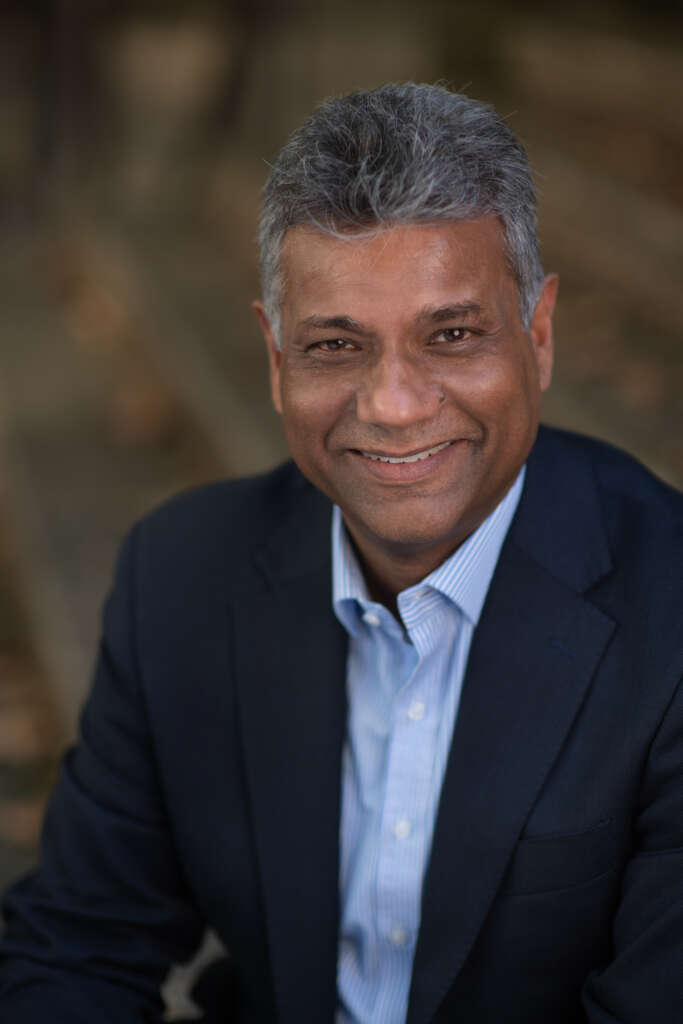Why Kanishka Raffel abandoned Buddhism to follow Jesus Christ
Archbishop Kanishka Raffel’s journey to faith
The Anglican Archbishop of Sydney, Kanishka Raffel, describes how he abandoned Buddhism to follow Jesus Christ.
My family came to Australia in 1972. My parents were Sri Lankan. My mother’s family were Buddhist and so my two sisters and I were raised as Buddhists in Australia, which was unusual then.
I think Australia’s first Buddhist temple opened in 1975 in Stanmore. It was a Thai Buddhist temple and Thai Buddhism is very similar to Sri Lankan Buddhism, so that was where the Sri Lankan community would go.
In my third year at university, I thought I should devote myself a little to the study of my religion. So, I started privately reading Buddhist literature. I visited the temple. I developed my meditation practice. But in God’s kindness, I’d had Christian friends at high school and at university. And so, at the end of my third year at university, I was going on holiday with a few friends and we picked up some of them at the end of a beach mission.
So we arrived on the last day of the beach mission. And after we’d had lunch, the team said to me, “Oh, we’re going to pray now. Maybe you could go for a walk on the beach.” And I said, “Oh, I’ll just stay here if that’s okay.”
That was the first time I saw Christian people in prayer, and it was quite surprising. I didn’t know what they were going to do when they said that they were going to pray. They just stayed right where they were and started talking to God. So that was eye-opening.
“He allowed me to see the vitality, the beauty, the majesty of Jesus Christ.”
Then I said to one of my friends, “What’s being a Christian all about?” And he said being a Christian meant he’d “lost control of his life to Jesus Christ”. Remember, I had devoted the year to serious study of Buddhism and was trying to develop, especially through meditation, control of my emotions and my ambitions and my desires, in order to be released from them. And here was my friend, who I respected, who said he’d lost control of his life to somebody who lived 2000 years ago!
Well, he asked me, “Would you read something if I gave it to you?” I said, “Okay.” And he gave me Mark’s Gospel and John’s Gospel.
When I was back at home after our holiday, in my bedroom, I thought I ought to keep my word to my friend. So, I got John’s Gospel out and began to read it. And as I did – wonderfully – God, in his kindness, convicted me, first of all, that I wasn’t reading a fairytale but that I was reading history. And he allowed me to see the vitality, the beauty, the majesty of Jesus Christ – a person who had friends and enemies, who had compassion and a mission, who was a man of emotions, but also seemingly always in control.

Kanishka Raffel
The Lord drew my attention to a particular phrase that John uses. He relates a story, and then he’ll say, “At this, the people were divided.” God really drew my attention to this phrase and turned it around on me, so that I began to ask myself, “Well, you’re not on the side of Jesus. Why not?”
As I read through the gospel once again, my attention became focused on John 6:44. Jesus says, “No one can come to me unless the Father who sent me draws them to me, and I will raise them up on the last day.” Although this verse raises questions about God’s sovereign election, what provoked me was the idea of “the last day”. Buddhism taught me to expect that it would take hundreds of lifetimes, through many deaths and rebirths, before I could hope to achieve enlightenment. The Buddha himself took over 500 rebirths. If that was true, then the idea of a “last day” was problematic.
But then, I began to wonder what Jesus could have meant when he said, “No one can come to me unless the Father … draws them to me.” How would the Father draw someone to Jesus? How could this happen? Then I noticed the very next verse. John 6:45 says, “It is written in the Prophets: ‘They will all be taught by God.’ Everyone who has heard the Father and learned from him comes to me.” It occurred to me that as I had been reading the gospel, the Father had been teaching me about Jesus! If I had indeed “heard the Father” and “learned from him” then the necessary thing was to “come to Jesus”. I was being “drawn to Jesus”, and in God’s kindness, I came.
Eventually, I couldn’t think of any good reason for not being on Jesus’ side. In a way that I couldn’t have explained, I just felt somehow that Jesus was for me. And I thought, “Well, I need to be for him too.” And so, in God’s kindness, he saved me.


